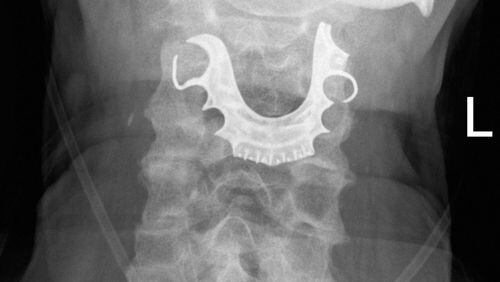A recently released report from a medical journal reveals that a 72-year-old British man had his dentures stuck in his throat after surgery, and it went unnoticed for eight days.
The Associated Press reported that, according to a report published Monday in BMJ Case Reports, the man had a minor operation and was released from the hospital. He returned to the hospital six days after the procedure, complaining of blood in his mouth and problems swallowing and breathing.
CNN reported that the man's minor surgery involved getting a harmless lump in his abdomen removed, and the man, who was not identified, was told to remove his dentures before the operation.
Initially, doctors were not able to determine the issue, and the man went home with antibiotics and steroids.
Two days later, he returned to the ER with worse symptoms and was treated for pneumonia, but a diagnostic procedure determined an object was in his larynx.
The object was the man's partial dentures.
Surgery was conducted to remove the dentures. After weeks of recovery, in which the patient had recurring bleeding that led to multiple blood transfusions, he was ultimately healing well and did not need to be admitted back into the hospital, according to the report.
"There are no set national guidelines on how dentures should be managed during anesthesia, but it is known that leaving dentures in during bag-mask ventilation allows for a better seal during induction, and therefore, many hospitals allow dentures to be removed immediately before intubation, as long as this is clearly documented," lead author Harriet A. Cunniffe wrote in the report.
Cunniffe listed learning points from the report, which included clearly documenting dental prosthesis before and after procedures and to listen to patients without being distracted by findings on tests like blood work and X-rays when they complain of issues.
About the Author






